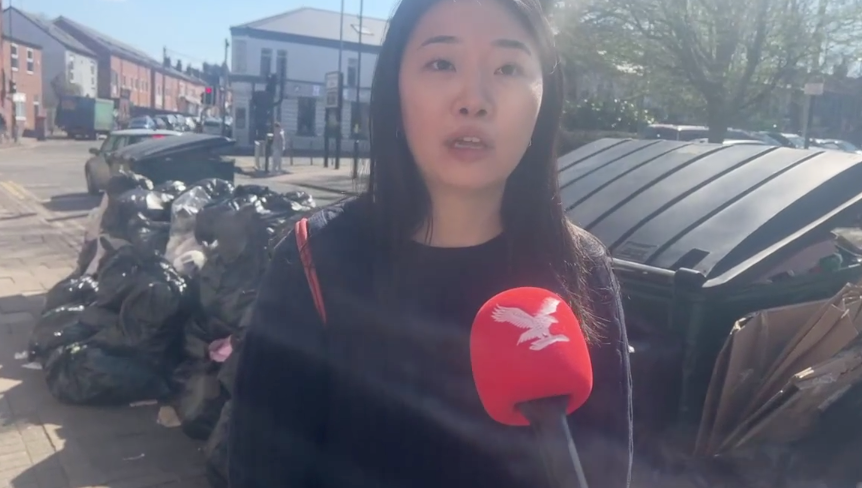Rats the size of cats scurrying through the streets in broad daylight, an overpowering stench permeating the air, rubbish pouring out of black bags that are piling up across the city – welcome to the new normal for the people of Birmingham.
Residents are now used to stepping out of their front doors into towering, reeking piles of bin bags right outside their homes, sometimes more than 5ft high. In fact it has become impossible for them to go about their daily lives without being confronted by mounds of rubbish, with an estimated 17,000 tonnes of waste uncollected around the city this week.
Fed-up locals fearing no end in sight say they have resorted to forking out hundreds of pounds to pay privately to have their rubbish removed, as an all-out bin strike that has lasted for weeks continues. Birmingham is only descending further into chaos as the council declared a major incident on Monday and concerns over health and fire risks grow.

So far, talks between the Unite union and Birmingham City Council have not been successful. The union launched the action after the scrapping of waste collection and recycling officer roles. The council says daily blocking of its depots by pickets has meant workers cannot get their vehicles out to collect waste. And it is frustrated residents who are suffering as a result of the dispute.
“It’s not something you want to be walking out your house to – it’s just a constant reminder that we’re just living in rubbish,” 21-year-old student Ben Bartlett-Metcalf told The Independent.
Gesturing to a bin overflowing with black bags, his friend Joshua Todd, also a 20-year-old student, added: “Obviously you can see the amount of rubbish that is around and it’s just disgusting, it’s off-putting, it’s not nice to live in. You don’t want to be walking down the street, especially as it’s getting warmer, the smells are becoming more apparent.”

Another student, 20-year-old Noah Kabuia, described leaving for university and being confronted by “all the bins outside … you can kind of smell it”.
But the most shocking sight for many has been the rats seen scuttling across their path or rummaging through rubbish.

Rose Shim, a 28-year-old student, described the rats as “my arm length”. She said: “It doesn’t look good and the rats are wandering around and I can see the pigeons picking through the trash.”
The students were speaking from Selly Oak, a student area of the city around the University of Birmingham, which has been particularly impacted by the bin strike, along with Small Heath.
Some locals sympathised with the striking workers, but others cared more about merely getting the rubbish off the streets.

“Just collect the rubbish,” pleaded Mr Todd. Mr Kabuia similarly called on the council to “just get the bins gone”.
For Lee Gainsley, 43, the deteriorating situation in his city is “totally unacceptable” on the part of the council. He said: “It’s, for me, totally unacceptable that any local authority can fail in having bins collected. It’s the most basic of services, which I think any resident expects.”

The 43-year-old, who manages a number of properties around Birmingham, said he has had to resort to desperate measures. “We’ve been paying approximately £240 a week to a private collector to empty a couple of the very big bins,” he said.
Birmingham City Council said declaring a major incident would initially increase the availability of street cleaning and fly-tipping removal workers, with an additional 35 vehicles and crews around the city. It would also allow the council to explore what further support is available from neighbouring authorities and the government, to help manage the situation, and work with partners to better manage health and fire risks that the build-up of rubbish is causing.

Communities minister Jim McMahon said the government “stands ready” to respond to any request for extra resources from Birmingham.
But Unite general secretary Sharon Graham pledged to “defend Birmingham’s refuse workforce to the hilt” and urged the council “to rethink this disastrous strategy”. She said: “Birmingham council could easily resolve this dispute but instead it seems hellbent on imposing its plan of demotions and pay cuts at all costs.”
Majid Mahmood, cabinet member for environment and transport at the city council, said last week that the authority was willing to work around the clock to resolve the dispute, having already made a “fair and reasonable” offer to affected workers.



